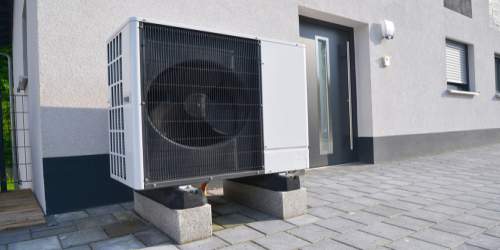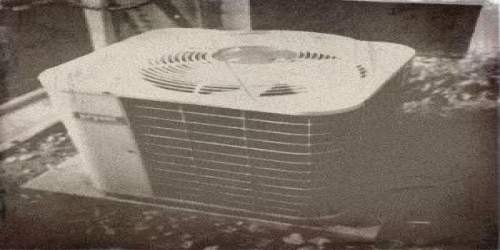Read Time : 3 Minutes
Different Types of Heat Pumps - A Comprehensive Guide
In the natural world, heat will normally transfer from a warm location to a cold one. A heat pump is any device that allows the transfer of heat from a lower temperature to a higher one, essentially against the natural ‘grain’ of things. Well-known examples in our modern environment are refrigerators and air conditioning units but heat pumps can also be used to heat spaces in our homes and businesses.
Heat pumps require the use of electricity to achieve this reverse of cold to warm transfer and so they are not technically a renewable technology, though the amount of electrical power needed is much less than the energy that we get from these devices as an end product. All types of heat pumps are eligible for the government’s Boiler Upgrade Scheme (BUS)
Air Source Heat Pumps
If you live in a moderate or settled climate such as we do in the UK, an air source heat pump can provide heating for your home or business. The heat pump unit is normally fitted to the side of the building, drawing in the air from outside, transferring the heat by means of compression and two coils made of conductive copper tubing. When heating is required, liquid refrigerant in the outside coil extracts the heat from the air and evaporates, passing into the inside coil where the gas returns to a liquid to produce warmth that can then be fed into your household heating system. Air Source heat pumps have become much more efficient over the last few years and can now provide significant savings on energy bills. Discover more about Air Source Heat Pumps and how they work.
COMPARE PRICES FROM LOCAL INSTALLERS
Compare prices from local companies fast & free
Enter your postcode to compare quotes from leading professionals. We promise to keep your information Safe & Secure. Privacy Policy
Ground Source Heat Pumps
The outside air isn’t the only place we can draw valuable heat from to keep our houses warm. The solar energy stored in the ground or water can be utilised to run ground source heat pumps which, in addition, involves heat pipes being laid into the earth. Also called geothermal heat pumps, these have higher efficiencies than air sourced heat pumps as the temperatures you find in the ground are generally more constant. There are several different kinds of ground source heat pumps:
- A horizontal array can be placed beneath the surface of your garden.
- A vertical heat pump goes directly down several metres into the ground through a bore hole.
- Rather than the ground this kind of pump can use a localised water source to draw the heat from.
The trade off with greater efficiency in ground source heat pumps is that they are usually more expensive to install as there needs to be significant excavation work to lay the piping. Find out more about how ground source heat pumps work.
Hybrid Heat Pumps
A hybrid array is basically a heat pump along with another energy source such as a gas boiler, which together provide a more constant source of warmth at a higher level of efficiency. It has the advantage that people with an existing heat generation source such as a gas or oil boiler don’t need to change their radiators if they install it. Another hybrid configuration is to have a mix of ground and air source heat pumps that operate at full efficiency at different times of the day or even throughout the year. So, when the air is colder outside, it draws on the ground source heat pump energy and when the air is warmer it operates in reverse.
Ductless Mini-Split Heat Pumps
Mini-split heat pumps are individual units that can be wall mounted and used for particular rooms. They have the advantage that they don’t require ducts to pass heat into rooms and are also suitable for retrofits on houses. Essentially, this kind of device works in a similar way to normal air source heat pumps but on a smaller scale.
Absorption Heat Pumps
An absorption heat pump is driven by another heat source such as solar-heated water or geothermal heated water rather than electricity. They are often referred to as gas-fired heat pumps, as they more often than not use the energy of natural gas, and they have mostly been found in industrial process in the past – though more commercial units are being developed for larger residential homes.
The Future of Heat Pumps
The benefits of heat pumps may well make it the heating choice of the future. For a small amount of energy in the form of electricity it can convert heat from a low temperature to a higher one that can be used to power radiators and heat the water in a boiler. It may well be that houses of the future will have heat pumps installed as a matter of course that will either make them more efficient or provide all their heating needs. More homes see it as a viable source of cheaper energy because it is also linked to the government’s Boiler Upgrade Scheme (BUS).





 How does a Heat Pump Work
How does a Heat Pump Work









Find a local installer
Welcome to the biggest directory of UK renewable energy companies